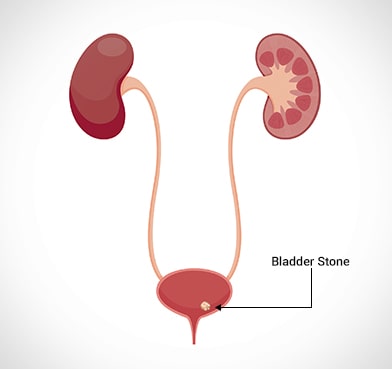Bladder Stone Surgery in Delhi
Bladder Stone Surgery in Delhi
Stones that develop in the urinary bladder are referred to as bladder stones or vesical calculus. Depending on their size, symptoms may include pain when passing urine, blood in the urine (haematuria), increased frequency of passing urine, intermittency of urination, sudden full stoppage/inability to pass urine, and so on. If you have urinary bladder stones and are suffering from symptoms because of them, then please visit Delhi Urology Hospital for hassle free bladder stone surgery in Delhi.
Why choose Delhi Urology Hospital for bladder stone surgery in Delhi?
- At Delhi Urology Hospital, you will be treated by Dr. Niren Rao, who has the distinction of being trained by a world class faculty at AIIMS, the premier institute of India.
- Dr. Niren Rao has more than a decade of experience in the field of Urology.
- At Delhi Urology Hospital, we use the latest lasers for treating stone disease.
- Bladder stone surgery in Delhi, performed at Delhi Urology Hospital, is a daycare procedure, and patients can be discharged on the same day of surgery.
- We believe in providing quality care at affordable prices to our patients.
- The hospital has set high standards of patient-centric care.



